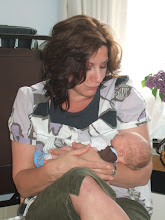High school begins for the freshman class. New friends, driver’s permits and first loves; the life of a young teen… Varsity cheering, honors chorus and great grades, what more could a mother ask for.
***
She was out of control. I thought it would be best for her to move to her stepdads to finish out high school. Maybe he could do a better job handling her; maybe getting her away from this crowd would help. She moved away, I was alone.
***
I was at my boyfriend’s house when the phone rang; it was one of my daughter’s girlfriends. The voice on the other line was hysterical; there had been an accident. I desperately tried to calm her down to find out who she meant; my heart was racing and I suddenly felt like I was going to be sick.
Hours later, I finally get the call; mom, please meet me at the hospital in ICU.
***
Countless yet familiar faces in the waiting room; some seated, others pacing in circles while many sobbed, holding one another…I felt helpless.
I went in to sit with her while she talked to him. He couldn’t hear her, one side of his skull was crushed, and the doctors said he was brain dead.
***
We still go visit his grave on occasion and try to remember the good times and not the tragedy of a young life taken so soon.
Saturday, October 23, 2010
Subscribe to:
Post Comments (Atom)

You get to leave a lot to the reader in vignettes; they are very interactive and we will work to bridge the gaps in linked vignettes.
ReplyDeleteBut this one leaves as a mystery a key element and I don't think the writer can get away with that. When we finish we don't know who was driving: was the daughter responsible for the boy's death, or a victim of his bad driving, or were they both victims of someone else's mistake, or what.
Thinking about it, I don't think the front and back halves of this really match up. The first part is a 'bad girl' story; the second part we are unsure of. Did the bad girl finally do something irrevocable and unforgivable and kill a boy? Or was she a victim?
Either answer could work with the opening you give us, but the reader is left high and dry, with no way to get closure on the piece.
If what I'm saying makes sense, is there a way in a rewrite to solve these problems without flat, unvignettish statements of fact?
I'm not necessarily asking for a rewrite--I'm asking if a rewrite is possible or if you see your way to one? So, don't rewrite or rewrite yet--instead enter into a discussion with me about this piece.